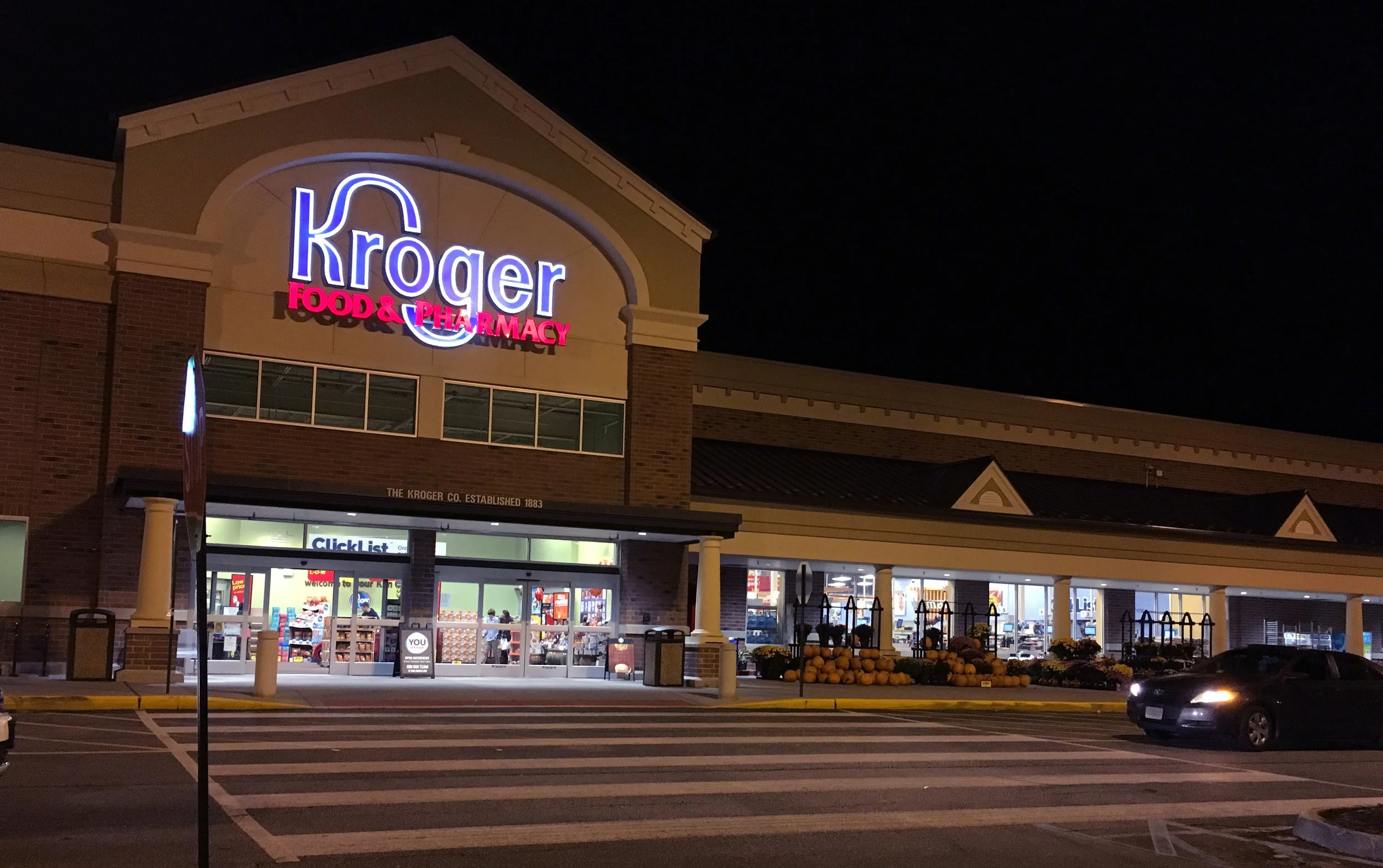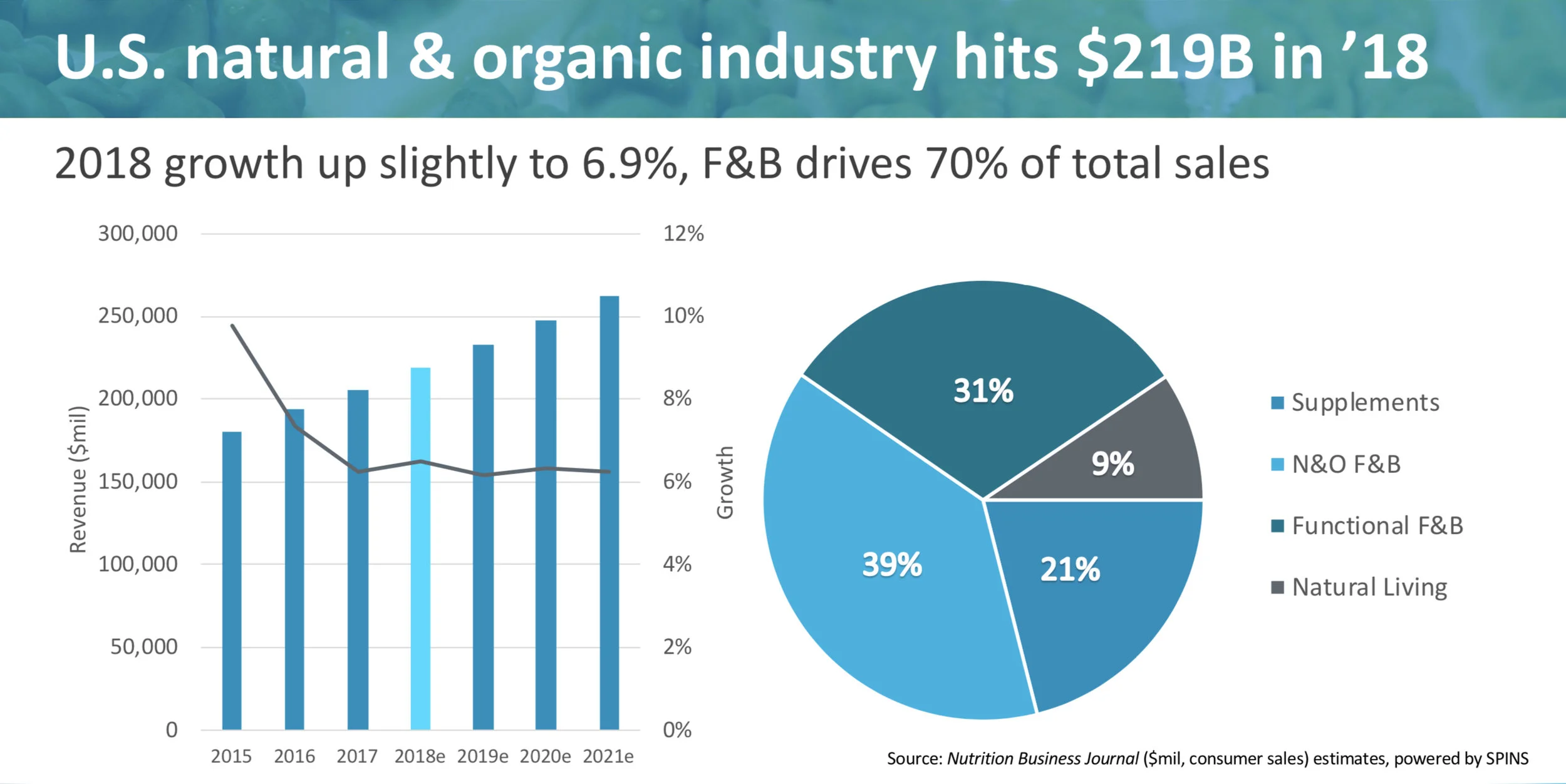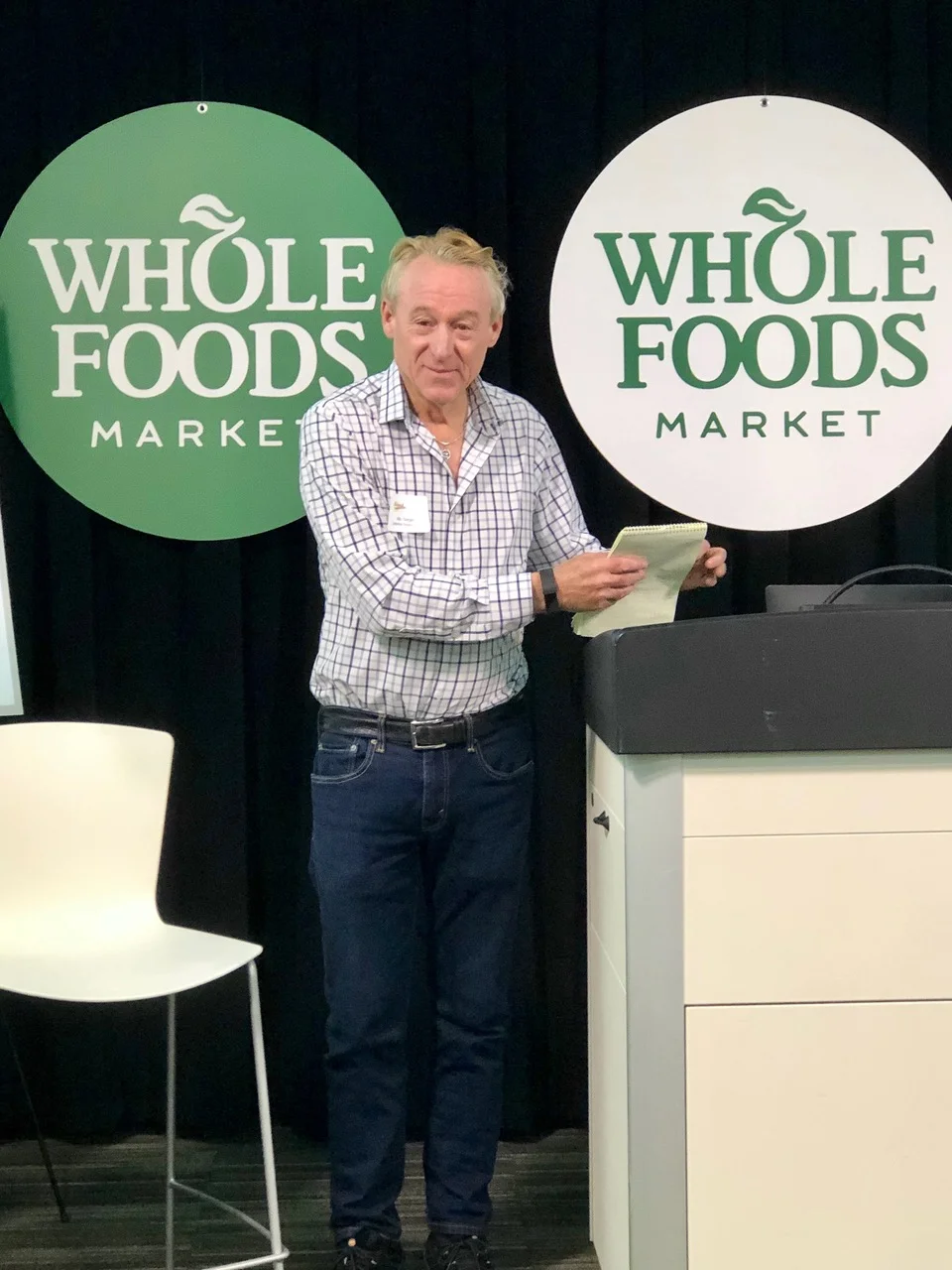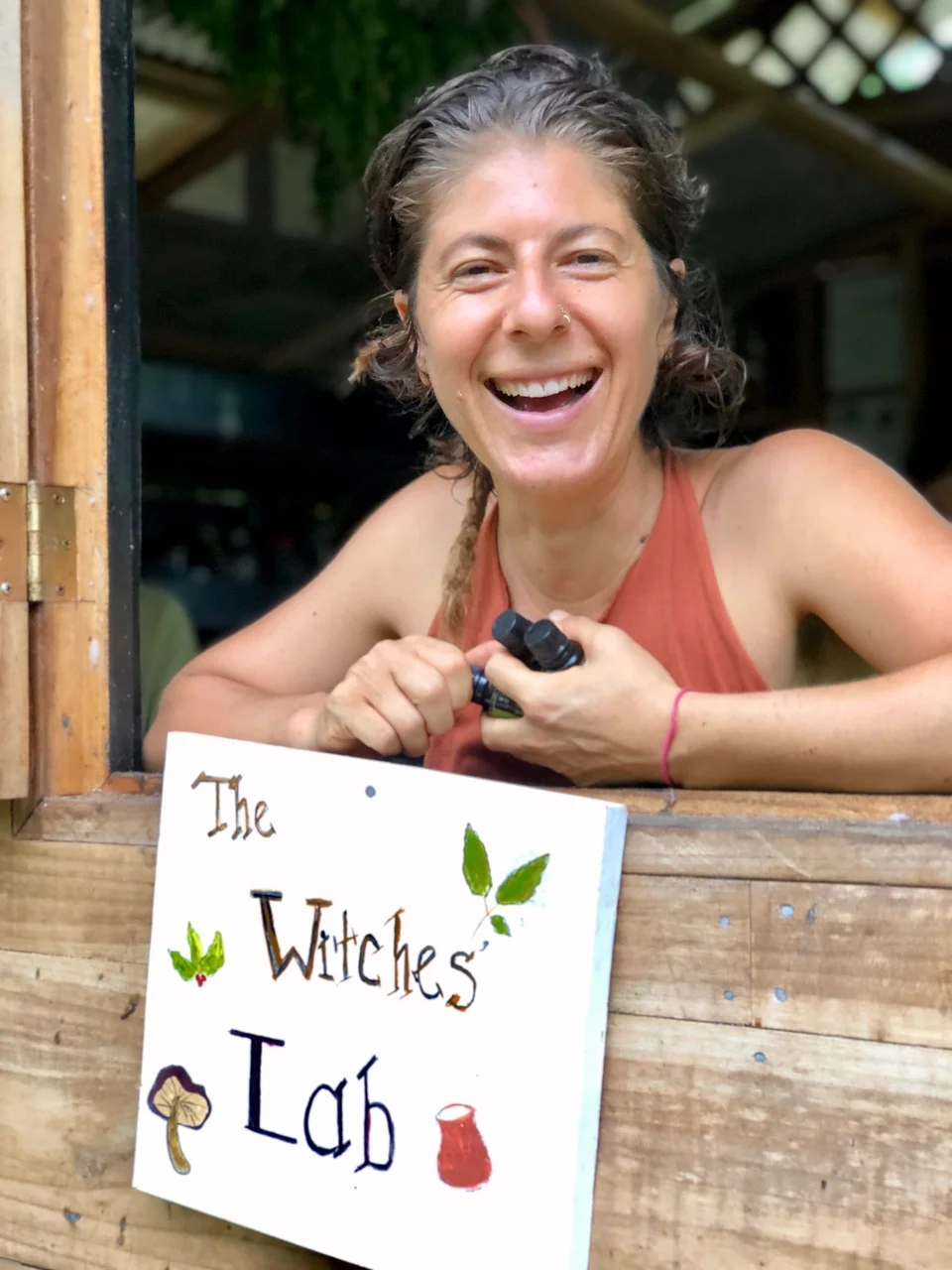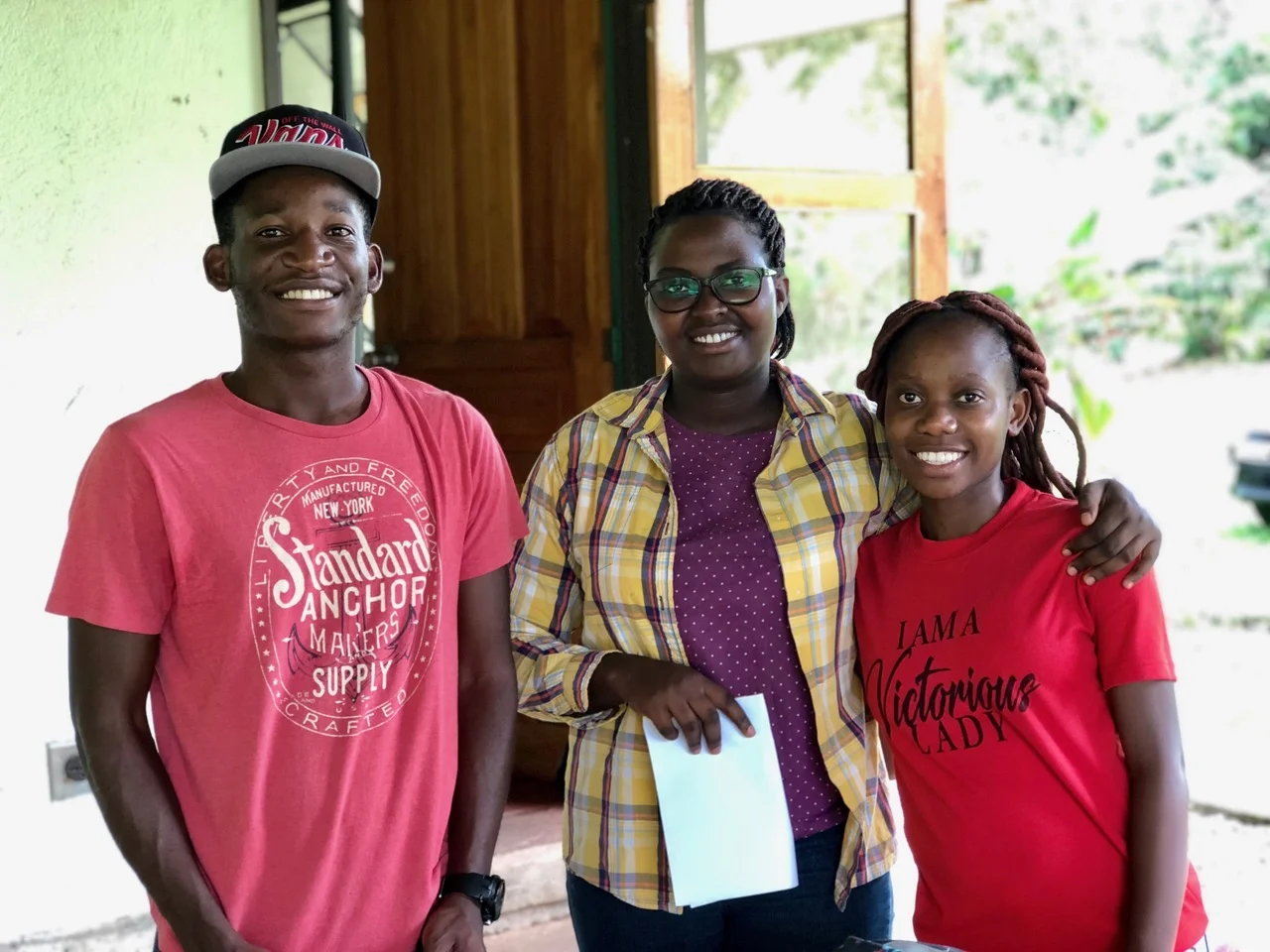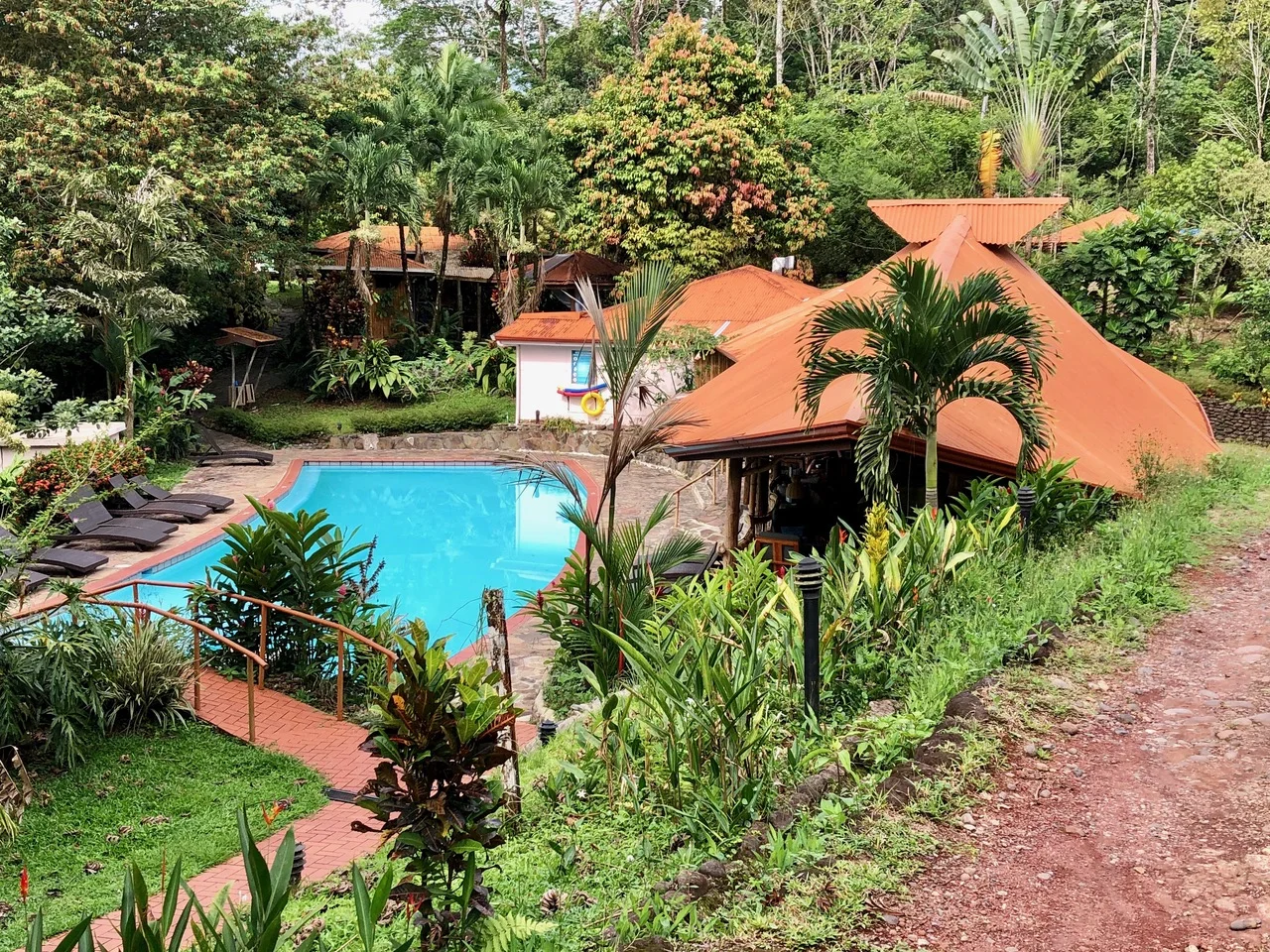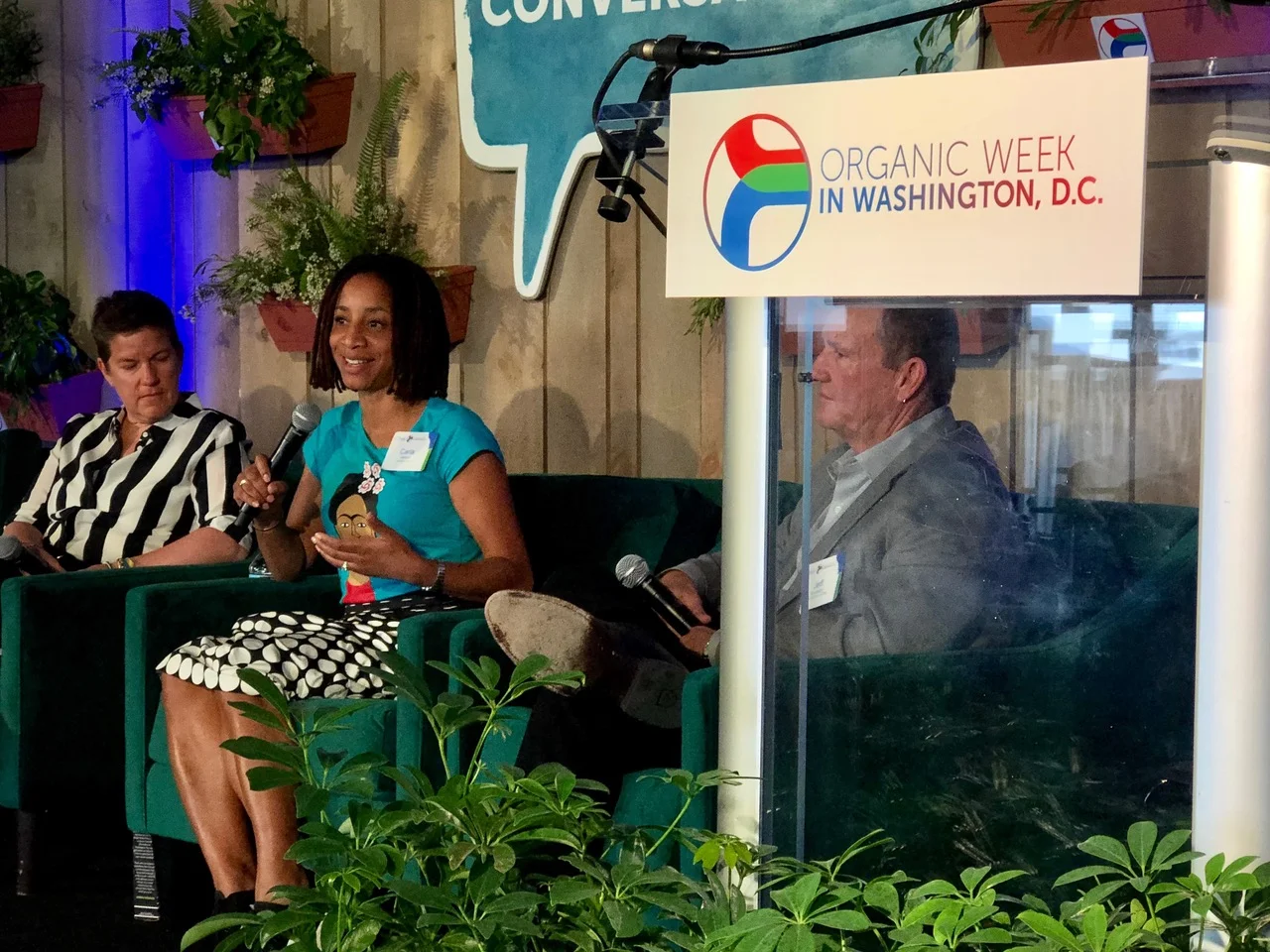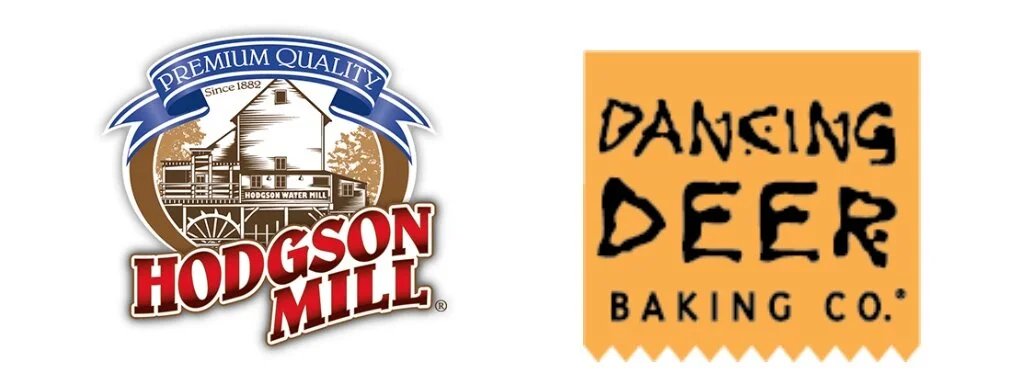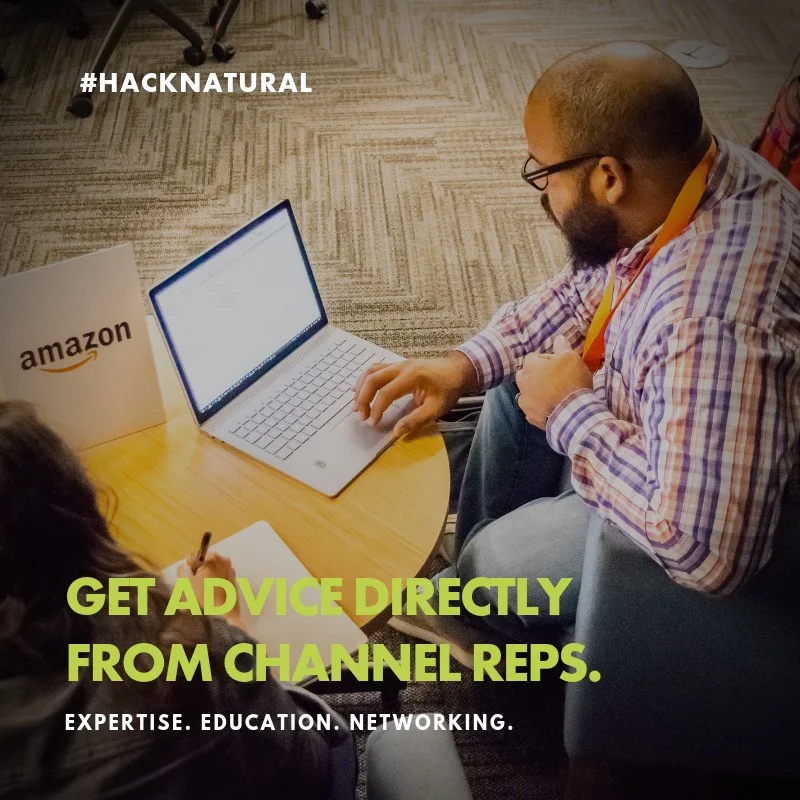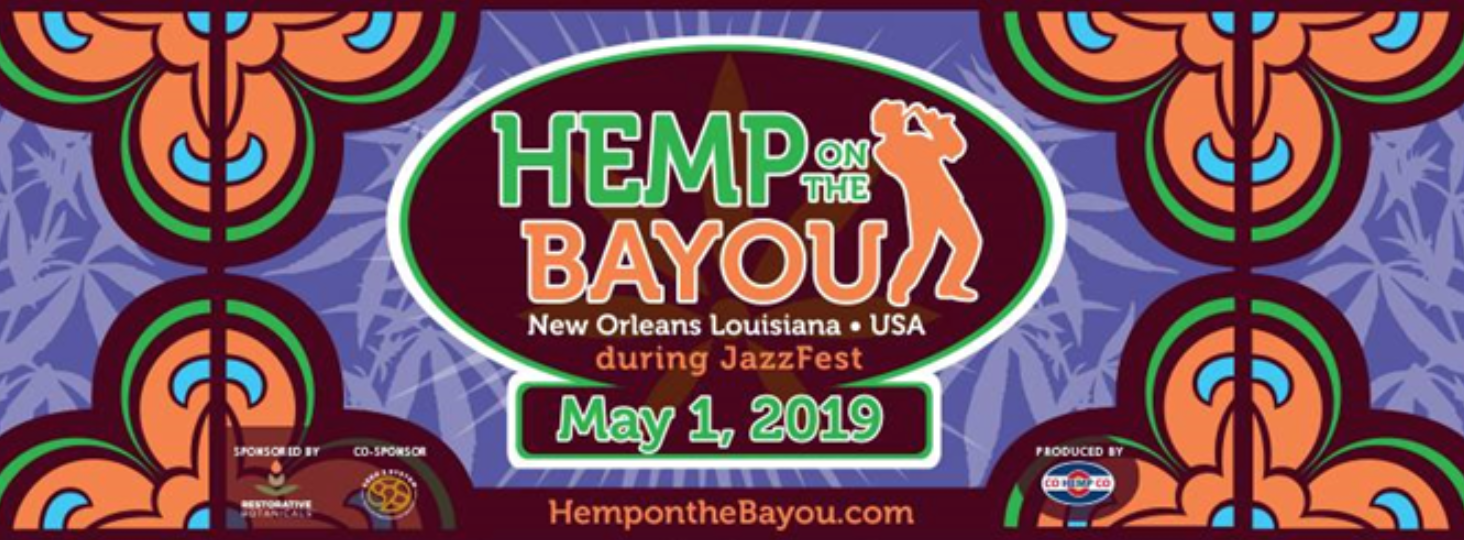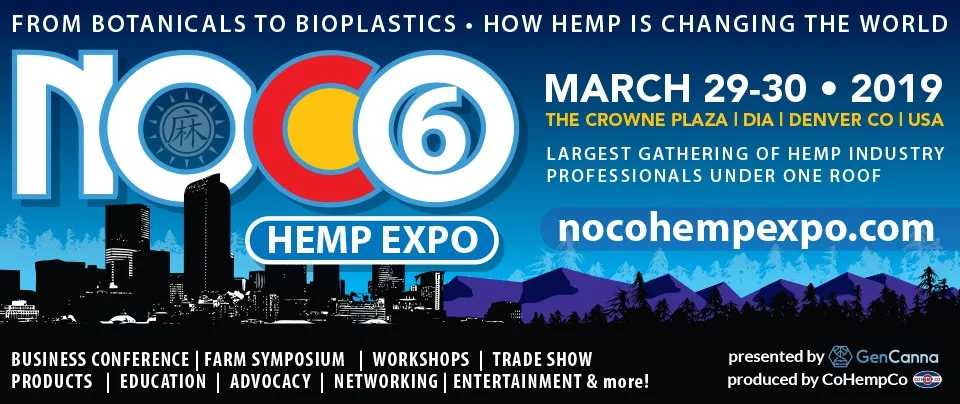Kroger, Nation’s Largest Supermarket, to Carry CBD in Nearly 1,000 Stores
By Steven Hoffman, Compass Natural
As the hemp and CBD market continues to evolve at hyper-speed, the nation’s largest supermarket chain, Kroger, announced it is joining Walgreens, CVS, Vitamin Shoppe, GNC, Nieman Marcus and other major retailers that have all started carrying CBD products in their stores.
Kroger, which made a “meaningful investment” in Boulder, CO-based natural foods chain Lucky’s Market, which itself is a leading seller of CBD products, announced on June 11 that it will now sell hemp-derived CBD topical products, including creams, balms and oils, in 945 Kroger-owned stores across 17 states, reported CNBC News, which referred to CBD as “one of the hottest consumer trends.”
“Like many retailers, we are starting to offer our customers a highly-curated selection of topical products like lotions, balms, oils and creams that are infused with hemp-derived CBD,” said Kristal Howard, head of corporate communications and media relations at Kroger, in a statement. “CBD is a naturally occurring and non-intoxicating compound that has promising benefits and is permitted within federal and state regulations. Our limited selection of hemp-derived CBD topical products is from suppliers that have been reviewed for quality and safety,” she added.
Consumer interest in and demand for products made with cannabinoid compounds or CBD derived from hemp extract is at a fever pitch. Hemp Industry Daily projects hemp-derived CBD retail sales will surge to as much as $7.5 billion by 2023, up from about $1 billion in sales in 2019.
Yet, while CBD derived from hemp is now legal thanks to the 2018 Farm Bill passed by Congress late last year, the FDA maintains that companies still can’t add CBD to food or sell it as a dietary supplement. However, with so many CBD supplements and CBD-infused food and beverage products already on the market, the FDA on May 31 held a public hearing to learn more about the issue and hear from hemp industry representatives, manufacturers, advocates and others as it considers its position regarding sales of these products.
For major retailers, selling CBD-infused, topical beauty and skin-care products brings less legal risk, which may explain why retailers such as Kroger, Nieman Marcus and others are starting to offer those types of products first. Given the explosive growth of the market, big box retailers Walmart and Target are also reported to be exploring the potential for hemp and CBD-related products in their stores.
Kroger, headquartered in Cincinnati, OH, is the world’s largest grocery retailer, with fiscal 2018 sales of $121.2 billion, and operating stores under names including Kroger, King Soopers, Ralph’s, Dillon’s, City Market, Fry’s, QFC, Mariano’s, Fred Meyer, Harris Teeter and others. Kroger also is a leading seller of healthy lifestyles products – it’s sales of natural and organic products alone exceeded $16 billion in 2017. Kroger’s private label organic brand, Simple Truth, with sales exceeding $2 billion, is one of the largest natural and organic brands in the U.S.
Kroger says it will sell the CBD products in Arizona, Arkansas, Colorado, Illinois, Indiana, Kansas, Kentucky, Michigan, Missouri, Nevada, Oregon, South Carolina, Tennessee, West Virginia, Washington, Wisconsin and Wyoming.
Organic Hemp Production Emphasized to Lawmakers, Farmers During “Organic Week” Policy Conference in Washington, DC
Originally appeared on www.LetsTalkHemp.com
One Organic Farmer Treats Hemp Grown for CBD Like a “Specialty Vegetable Crop”
By Steven Hoffman
The importance of certified organic in hemp agriculture cannot be overstated. Currently, nearly 80,000 acres are in hemp production in the U.S., and very few of them are certified organic. That means that the majority of hemp produced in the U.S. is being grown conventionally, using potentially toxic, synthetic pesticides and synthetic nitrogen fertilizer derived from the fracking of natural gas.
Frankly, that’s not very good for the environment or for the oncoming climate crisis, as conventional agriculture is one of the largest non-point sources of global greenhouse gas (GHG) emissions contributing to global warming, and fracking releases massive quantities of methane – another potent GHG – into the atmosphere. On the other hand, organically grown hemp can actually sequestercarbon out of the atmosphere and put it back in the soil where it belongs, helping to keep CO2 and other noxious GHGs out of the atmosphere.
Additionally, when given a choice, I’ll choose CBD and hemp extract products that are produced and processed organically, thus minimizing my dietary exposure to toxic pesticide residues and other chemical solvents, because who wants pesticide residues included with their concentrated botanical medicine?
Seeing the explosive growth of the hemp market in the wake of the 2018 Farm Bill, the organic industry’s leading trade association, the Organic Trade Association (www.ota.com) invited my communications agency, Compass Natural, to help plan and present an educational track focused on farmers’ perspectives and market opportunities for certified organic hemp, CBD and related products as part of OTA’s annual Organic Week policy conference, held May 20-23, 2019, in Washington, D.C. OTA’s Organic Week draws organic industry leaders from across the U.S. to interact with policymakers and Congressional leaders to help forward the interests of organic food and agriculture.
At the Organic Week conference, OTA announced that sales of organic products in the U.S. surpassed $50 billion, growing 6.3% to reach a record $52.5 billion in 2018. Almost 6% (5.7%) of all food sold in the U.S. is now organic, driven in large part by demand for organic produce, dairy, plant-based products, dietary supplements, textiles and fiber. “Organic is now considered mainstream. But the attitudes surrounding organic are anything but status quo,” said Laura Batcha, CEO and Executive Director of the OTA. “In 2018, there was a notable shift in the mindset of those working in organic toward collaboration and activism to move the needle on the role organic can play in sustainability and tackling environmental initiatives.”
Lobbying for Hemp
As part of OTA’s Organic Week, I was scheduled to visit several congressional offices on Capitol Hill, lobbying on behalf of organic food and farming and industrial hemp, CBD and related products. The staff at the offices of Colorado Senators Michael Bennett and Cory Gardner were supportive of industrial hemp in our meetings, and in alignment with Colorado Governor Jared Polis’ goal of furthering Colorado’s leadership in industrial hemp, as were staff leaders in the offices of Colorado Representatives Joe Neguse and Diana DeGette. However, staff at the offices of Idaho Congressmen Russell Fulcher and Mike Simpson deferred to their state’s legislature when it came to my questions regarding Idaho’s seizure in January of a container shipment of industrial hemp from a licensed grower in Oregon bound for processing in Colorado, despite the 2018 federal Farm Bill declaring that interstate transport and commerce of hemp-derived products is now legal throughout the U.S.
In addition to our Capitol Hill visits, I moderated a lively seminar attended by a number of organic farmers interested in or already growing hemp for food, supplements and fiber as part of an educational track focused on hemp during OTA’s Organic Week. At the seminar, longtime organic farmer Chris Jagger, owner of Blue Fox Farm in Oregon, shared how he began growing hemp three years ago. Instead of planting hemp densely, like they do for fiber production where tall stalks and little foliage are desired, Chris farms his hemp like a specialty crop, or “like vegetables,’ he says, to cultivate the delicate hemp flowers for CBD extraction. Currently, a small number of organic certifiers, including OneCert, CCOF and MOSA are certifying farms for organic hemp production, and rumor has it some other major certifiers will soon follow.
At the same time across town, hemp advocate Ben Droz participated in the inaugural Congressional Cannabis Forum hosted on May 21 by Washington, D.C.-based KCSA Strategic Communications. “While covering all aspects of the cannabis market, the KCSA forum presented a hemp panel that examined capital markets and the global economic implications of the legalization of hemp under the 2018 Farm Bill,” said Droz. “If hemp extracts become a global commodity, it might not necessarily benefit small scale farmers and producers,” he cautioned. “However, until the FDA comes up with more clear guidelines concerning hemp products, the big corporate players will continue to sit on the sidelines, allowing time for smaller brands to establish and build market share, but that could change at any time,” he said. Droz noted that the FDA scheduled its first public hearing on hemp and CBD in food and beverage for Friday, May 31, 2019. Information on the hearing is published in the Federal Register.
Organic agriculture is a bright spot in the U.S. farm economy, continuing to grow at a rate more than double the growth rate of the overall U.S. food market. According to new OTA data, the number of organic farms grew by 39% while the total number of farms in the U.S. shrank by 3% between 2012 and 2017. Organic products can now be found in more than 82% of U.S. homes, and in some states, including California, Arizona, Oregon, Washington and my home state of Colorado, organic products are in over 90% of U.S. households. Here’s hoping that organically produced hemp follows suit.
Natural Investing: The Movement Toward Natural & Organic Food and Healthy Lifestyles
Originally appeared in the June 2019 edition of GreenMoney Journal.
By Steven Hoffman
Sales of Natural & Organic Products Outpace Conventional Food and Beverage as Consumers Get the Message about the Relationship between Diet and Health
Launching natural and organic products companies, as well as investing in them, is a daunting challenge in today’s shifting and competitive retail and consumer products marketplace. Yet, consumer demand for healthier products continues to grow. With concerns ranging from the cost of healthcare to the effects of food and agriculture on climate change, consumers of all ages are opting for natural, organic and functional foods and beverages, nutritional supplements, natural medicines and other eco-friendly products from mission-based companies, local producers and brands that share their values and address their concerns.
And, with conventionally grown apples included at the top of the Environmental Working Group’s infamous “Dirty Dozen” list of contaminated fruits and vegetables because each conventional apple contains on average 4.4 toxic, synthetic pesticide residues, people are realizing that it’s the organic apple a day that keeps the doctor away. By choosing organic, regenerative and other healthful and eco-friendly products, people are investing most directly in their family’s health, the health of the planet, and the health of family farms and local communities. And it’s translating into sustained business growth in the natural and organic products sector.
In 2018, sales of natural and organic products increased 6.9% to $219 billion, according industry market research leader New Hope Network, while sales of conventional food and beverage products, totaling $634 billion, declined by -0.2% in the same year. “It’s not news that sales of natural, organic and functional foods and beverages are growing at a far faster pace than conventional food and beverage,” said Carlotta Mast, New Hope’s Senior VP of Content and Insights, in an industry trends seminar presented at Natural Products Expo West in Anaheim, CA, in March 2019. (Attracting nearly 90,000 visitors from over 70 countries, Expo West is the world’s largest natural and organic products trade show.) “The natural and organic products industry is on track to surpass $250 billion in sales by 2021,” Mast added.
In a real sense, Mast noted, conventionally produced, highly processed food and beverage products, made with artificial flavors, colors and other ingredients, are experiencing negative growth. All the growth today in the food and beverage sector is in natural, organic, nutritional, non-GMO and other clean label products. From a small health food and crunchy, hippy movement of independent natural foods stores and co-ops in the 1950s, ‘60s and ‘70s, natural and organic is now leading the way in food and beverage retail and manufacturing innovation – marking a huge shift in the market and in the consumer mindset.
Online vs Brick & Mortar
While manufacturers are compelled in today’s market to pursue what’s referred to as “omnichannel” sales strategies, natural and organic continues to be a “brick and mortar” industry, with 86% of total sales being rung up in either mass market or natural foods stores. Conventional grocery retailers including Kroger, Walmart, Costco and others are taking a larger chunk of the market. According to New Hope data, 60% of total natural and organic product sales are happening in the mass market and mainstream conventional grocery channel, which grew 7.4% to $130 billion in 2018. However, more midsize natural food retail chains such as Sprouts Farmers Market (NASDAQ:SFM), Natural Grocers (NYSE:NGVC) and others, which are dedicated to selling predominately natural and organic products, continue to perform well.
“The natural channel, which helped create this industry and continues to be a vitally important channel, grew at a slower rate of 3.3% to reach about $58 billion in sales in 2018. Although natural is now smaller than the mass market channel, it is still strategically important, particularly for new brands,” Mast said.
Online sales are getting a lot of attention in the natural and organic products space, but according to 2018 data from New Hope Network, e-commerce is driving less than 5% of total sales. However, “that will change pretty quickly over time,” Mast said. E-commerce is becoming increasingly important as a launch pad for new products and brands, and online sales for natural and organic products grew 18% to reach $8.4 billion in 2018. “In a survey of 300 natural brands, half of the new companies that entered the market between 2015 and 2018 started selling online before they moved into any kind of retail distribution. That’s a huge shift for our industry,” Mast noted.
“Even with wild swings in the economy over the past nine years, people are moving into natural for health reasons and not financial ones,” said Nick McCoy, Co-founder and Managing Director of Whipstitch Capital, a leading independent M&A and private placement advisory firm focused on the healthy living consumer market. And the good news for natural products businesses trying to establish themselves in the market is that “retailers are still embracing smaller brands, even in conventional natural food sets. Once people start investing in their health, they’re not likely to go back,” he added.
Categories and Trends Driving Growth in Natural and Organic
Organic: Sales of organic foods and beverages grew 5.6% to become a $45 billion market segment in 2018. According to the Organic Trade Association, the organic industry’s leading trade group, in the last decade alone, the U.S. organic market has more than doubled in size. According to New Hope’s Mast, “Organic is absolutely mainstream now and with increased volume and size has come a slight slowing of growth. Some of this has come from the struggles of organic dairy, which makes up 14% of the category, and last year the organic dairy category continued to see growth plateauing due to oversupply and growing consumer preference for plant-based beverages,” Mast observed. According to New Hope’s data, organic produce – fresh fruits and vegetables – comprises 38% of all organic sales. “Organic supply is lagging behind growing consumer demand, a challenge the organic industry has to address,” Mast added. According to the Research Institute of Organic Agriculture (FiBL) and IFOAM Organics International, leading international organizations based in the EU, the global market for organic food reached an estimated $97 billion US in 2017 (approximately 90 billion euros). The U.S. is the leading market with 40 billion euros, followed by Germany (10 billion euros), France (7.9 billion euros), and China (7.6 billion euros). The Swiss spent the most on organic food (288 Euros per capita in 2017), and Denmark had the highest organic market share (13.3 percent of the total food market). In 2017, 2.9 million organic producers were reported worldwide, a 5% increase over 2016. Total global farmland under organic production increased 20% to nearly 70 million hectares (173 million acres), representing the largest growth ever recorded by FiBL and IFOAM. Yet for all the success of organic, globally, only 1.4% of the total estimated farmland is organic. Organic production, and in particular, Regenerative Agriculture, with its focus on sequestering carbon and building healthy soils, has the potential to help mitigate climate change and is a powerful new movement emerging in sustainable food and farming.
Plant Based: With a $183.8 million IPO filing submitted recently by plant-based meat alternative company Beyond Meat, maker of the Beyond Burger, plant-based foods are now firmly a trend, as more Americans seek “flexitarian” diet options to reduce the consumption of meat and incorporate more plant based options in their diet. According to the Plant Based Foods Association, sales of plant-based foods grew 20% in 2018 to more than $3.3 billion. This growth is significant when compared to the sales of all foods, which grew just 2%, so plant-based foods dollar sales are outpacing dollar sales of all retail foods by 10X, the association claims. In particular, plant-based dairy alternatives are a rapidly growing category with 50% growth reported. This category includes plant-based cheeses, creamers, butter, yogurts, and ice creams (but not plant-based milk). Plant-based milk now represents 15% of the total milk market, says the Plant Based Foods Association.
Hemp and CBD: According to data collected by Nutrition Business Journal, sales of products derived from industrial hemp, including full spectrum hemp extract and CBD products, grew 60% to reach $238 million in 2018. Industrial hemp, while derived from the same Cannabis sativa plant as marijuana, is defined as containing less than 0.3% THC. At such low levels, hemp is the non-intoxicating cousin to marijuana. With more than 25,000 recorded uses throughout human history from building materials, paper and bioplastics to textiles and fashions, superfoods and natural medicines, hemp is rich in other cannabinoid compounds, of which CBD or cannabidiol is the most widely known. These cannabinoid compounds have been shown to be beneficial to human and animal health. In a historic move championed by U.S. Senator Mitch McConnell (R-KY), industrial hemp was legalized in the United States for the first time in over 80 years when the 2018 Farm Bill was signed into law by President Trump in December 2018. For farmers across the country seeking alternative crops to GMO corn and soy and tobacco, hemp has been a godsend. According to industry group Vote Hemp, total acreage under hemp cultivation in the U.S. exceeded 78,000 acres, an increase of nearly 26,000 acres over 2017 estimates. For independent natural products retailers, sales of CBD products, which are now legal across the U.S., though some states and municipalities are still challenging the national law, have also been a boon, enabling them to differentiate themselves from the mainstream retail competition. And while the Food and Drug Administration (FDA) is monitoring sales of CBD products, the agency has indicated it will allow the market to evolve while also keeping a close watch on potential bad players who make misleading or fraudulent claims on products.
Functional Foods and Ingredients: Consumers are opting for food and beverage products that provide real health benefits and functionality, reported Mast, and beverages and functional snacks helped drive 7.5% growth in this category to $68 billion in sales in 2018. The most popular functional ingredients included the herb ashwaganda, pre- and pro-biotics, and hemp and CBD. “The growth in probiotic foods and beverages represent a continued blurring of the lines between dietary supplements and foods and beverages, as consumers have a growing preference for non-pill and non-capsule delivery forms for functional products,” Mast shared. In addition, the “snackification” convenience trend continues to drive expansion in better-for-you and functional snacks.
Dietary Supplements: Sales of nutritional supplements grew 6.1% in 2018 to $46 billion, driven by sales of collagen products, adaptogenic herbs and other botanical products, mushrooms and other immune support products, anti-inflammatory products such as turmeric, pre- and pro-biotics, multivitamins, and CBD and hemp products.
Natural Living: A $20.8-billion category comprising natural personal care and beauty care products, household products and pet care. In addition to pet care, mentioned above, product trends driving this category, which grew 6.5% in 2018, include household cleaners (double-digit growth), organic oral care and feminine care products. Referred to as a “self-care category,” Mast observed that consumers are embracing clean beauty and are paying more attention “not only to what they put into their bodies but also what they put on their bodies and bring into their homes.”
Pet Products: “Natural and organic pet products outperformed all other categories in 2018 – sales growth for the natural pet category was up 10.2% to $7 billion, reported Mast, who also shared that growth in natural and organic pet products far outpaced the 1.9% growth achieved in 2018 by the $26-billion conventional pet products market. “More than 70% of Millennials currently own a pet, according to the American Pet Products Association, and 86% of Millennials believe that natural and better-for-you pet food is vital for the health of their pet,” Mast added.
Sugar Ain’t So Sweet: Other “macro trends” driving the market include changing consumer perceptions around nutrition and healthy fats, and a growing awareness that “sugar isn’t all that sweet when it comes to health.” Diet trends include the Paleo and Keto diets, and convenience still rules, but products have to have great nutrition and taste. Consumers are also becoming increasingly concerned about packaging waste and are looking to support inventive business and ownership models, sustainable sourcing and packaging, and fair trade, socially responsible and mission driven brands.
Where to Invest?
Motley Fool writer Brian Stoffel says, “If you’re looking for the short answer as to who will be the big winners in the organic and natural food movements, the answer is simple: smaller, local organic farmers … and Amazon (NASDAQ:AMZN).” The reasons, he says, include the trend that today’s Millennials – now the largest demographic spending group – want to purchase from brands that are more organic, small, and locally focused. Stoffel posits that when bigger brands buy out smaller natural and organic brands, today’s savvy consumer simply pivots to a different brand that better reflects their desires
On the other side of the coin, Stoffel’s reasoning behind considering online power house Amazon as a major player in natural and organic products is its position as owner of natural products retail pioneer Whole Foods Market, as well as its leadership position in the e-commerce world where it sells millions of natural and organic products at low margins.
In between are a number of publicly traded companies including distribution leader UNFI (NYSE:UNFI) and mid-size natural and organic products retail chains Sprouts Farmers Market (NASDAQ:SFM) and Natural Grocers (NYSE:NGVC). Seeing the shift in consumer preference to natural and organic, major retailers including Kroger (NYSE:KGR), Costco (NASDAQ:COST), Walmart (NYSE:WMT) and others have all become significant sellers of natural and organic products. Kroger, which reported more than $16 billion in natural and organic products sales in 2017 and double-digit growth of natural products over the past several years, also is a majority investor in Lucky’s Market, a rapidly growing, midsize natural and organic products retail chain with 35 stores in 11 states.
In the exploding market for hemp and CBD products, a handful of companies have emerged as market leaders, among them some publicly traded companies including Charlotte’s Web (NASDAQOTH:CWBHF), Elixinol (OTCMKTS:ELLXF), CV Sciences, sold under the brand name +CBD Oil (NASDAQOTH:CVSI), Isodiol International (CNXS:ISOL), Aurora Cannabis (OTCMKTS:ACBFF), Canopy Growth (NYSE:CGC), and others.
As a closing piece of advice, independent natural foods retailer Philip Nabors, co-founder of the family owned Mustard Seed Market in Akron and Cleveland, OH, proffers that while an investment in market giant Amazon might seem attractive, it does not necessarily support local business and economies. “Green investors who want to place some of their funds in higher risk investments might want to consider investing in local businesses, where such investments can more directly impact local communities” – and also where individual investors can invest not only money, but potentially time, energy, resources, and relationships, and be rewarded with a more immediate connection in the communities in which they live, and in the long run as these businesses grow and build value, he says.
PERFECT MATCH! Naturcolor’s New Color Finder Tool Helps Consumers Personalize Their Own Hair Color Formula — and Mix It Up Themselves
Next Generation, High Quality, Herbal-Based Permanent Hair Color Gel Comes in 31 Hues, Allowing Users to Create Unique, Personalized Looks at Home
NAPA, CA (June 3, 2019) – Naturcolor, an herbal-based permanent hair color gel designed for chemically sensitive and ecologically minded people, has added a customizable Color Finder tool to its website that allows visitors to find perfect color matches based on their natural hair color, skin tone and other important factors. With the help of Naturcolor’s excellent How-To Guide and a Consumer Care Hotline to answer online shoppers’ questions, the groundbreaking company is taking the guesswork out of coloring hair at home.
“Easy to use and available 24/7, our new Color Finder gives users the confidence they need to choose the right hair color,” said Eric Gustafson, Naturcolor’s general manager. “This tool makes it possible for everyone—even people who may feel confused about mixing colors—to create a customized color that is unique to and ideal for them.”
Naturcolor offers an array of 31 different hues, giving users maximum flexibility in creating custom colors. After answering simple questions about their natural color, previous coloring, skin tone and color preferences, visitors are provided with recommendations for one or more colors or combinations of colors to help them achieve their desired result. When applicable, the results may also include mixing options, secondary colors that can be combined with the recommended products to achieve customized results—all while staying within the defined parameters of lightness and darkness, grey coverage, and tone preference.
Naturcolor products are handcrafted with care in small batches from the finest Italian pigments and plants such as burdock, gotu kola and hops that have been used for thousands of years to keep hair strong and supple and prevent hair loss, as well as rich shea butter to nourish it and leave it feeling silky smooth. Free of ammonia, resorcinol, and parabens, the products can be used repeatedly without damaging hair. They were recently featured in Whole Foods Magazine as a top seller in the anti-aging market.
“Naturcolor is intended for both men and women to discreetly color their own hair, and tools like the Color Finder make that simple and attainable,” Gustafson said. “In just one hour, you can add subtle highlights or dramatically change the color of your hair—without ever leaving the comfort of your home.”
Naturcolor was recently endorsed by Worldwide Business with kathy ireland®. View the full video here.
Naturcolor products are available online at https://naturcolor.com/shop/ and Amazon.com, and at leading natural products retail stores including Natural Grocers, Whole Foods Market, Vitamin Shoppe and others. For wholesale inquiries, contact us.
About Naturcolor
Naturcolor is an herbal-based permanent hair color gel designed to change or enhance one’s existing hair color while blending in gray. This high-quality product represents a new generation of hair colorings. It was formulated for those who are ecologically minded and may be coloring their hair for the first time. Learn more at www.naturcolor.com, and follow us on Facebook, Instagram and Twitter.
Contact
Steven Hoffman, Compass Natural, steve@compassnaturalmarketing.com, 303.807.1042
# # #
On the Organic Trail
Originally appeared in New Hope Network’s IdeaXchange, May 2019
By Steven Hoffman
In which the author spends the month of May visiting Whole Foods Market Global Headquarters in Austin, TX; EARTH University in Costa Rica, the world’s leading university of sustainable tropical agriculture; and Washington, DC, lobbying at OTA’s Organic Week on behalf of organic agriculture, industrial hemp and CBD.
Boulder, Colorado, is a pretty great place from which to run a public relations, communications and brand marketing agency dedicated to natural, organic, eco-friendly, hemp-centric and other mission-based brands. For a relatively small town, the concentration of natural products entrepreneurship and resources available for both startups and established businesses is like few other places (see Naturally Boulder).*
Yet, after a long winter, and having received a small handful of unexpected invitations, I packed my bags for a nearly month-long road trip that began with a visit in early May to Whole Foods Market’s global headquarters in Austin, TX (another “epicenter” of natural products; see Naturally Austin), to attend a unique brand innovation summit; and ended by participating in the Organic Trade Association’s Organic Week in Washington, DC. There, yours truly served as a speaker and sponsor of OTA’s annual policy conference, which included visits to congressional offices to lobby on behalf of organic agriculture and industrial hemp and CBD.
In between, I took advantage of a unique opportunity to travel to Costa Rica – a country in which I served as a Peace Corps volunteer in the late 1970s – to visit and learn about a number of permaculture, regenerative organic and sustainable agriculture operations and educational institutions in a country that has taken the lead on sustainability and climate change in Latin America.
From Punta Mona, an educational permaculture farm reachable only by boat or hiking trail where the Caribbean Sea meets the coastal rainforest, and EARTH University, the world’s leading sustainable tropical agriculture institution drawing more than 400 students and researchers from over three dozen countries, our Costa Rica tour also took us to Finca Luna Nueva (New Moon Farm), a 300-acre biodynamic farm and eco-resort located adjacent to the Children’s Eternal Rainforest, a 250,000-acre nature reserve at the foot of Arenal Volcano in the north of the country. There, Finca Luna Nueva’s founders are dedicated to promoting sustainable building and regenerative agriculture, and spreading the message worldwide about soil health, carbon sequestration and climate change.
This, then, is my brief tale, On the Organic Trail.
Boulder and Austin are not the only epicenters of natural products entrepreneurship in the country. Check out Naturally Chicago for companies and events in the Windy City. Note: Presence Marketing is a founding Sponsor of Naturally Chicago.
Whole Foods Market, Austin, TX – Brand Innovators Summit
With a lower pricing strategy and a renewed commitment to supporting brand innovation, Whole Foods Market hosted on May 2-3 Secrets to a Healthy Brand Strategy, an invitation-only summit that matched some of the world’s largest food companies with unique startup and emerging brands vying for attention online and on the shelf. Held at Whole Foods’ corporate headquarters in Austin, TX, and produced by Brand Innovators, the largest peer-to-peer community of brand marketers in America, the event featured an exploration of consumer behavior and technology and what it takes to build enduring healthy lifestyles and mission-based brands.
Former Whole Foods Market board member and Celestial Seasonings founder Mo Siegel opens the Brand Innovators summit in Austin on May 2
I was invited to the brand strategy summit after getting to know Michael Schall on a hiking trail during an earlier trip to Hill Country outside of Austin. Michael, Senior Coordinator of Global Growth and Business Development for Whole Foods Market, is also former CEO of Manischewitz Kosher Foods and Guiltless Gourmet. A very knowledgeable and experienced business leader and one heck-of-a nice person, after learning of my work, Michael insisted I attend. How could I possibly say no?
There, I met Wes Hurt, a recovering drug addict and founder of CLEAN Cause, a sparkling Yerba Mate beverage company founded in Austin in 2015 that donates 50% of its profits to support recovery from alcohol and drug addiction. The products are sold online and in select stores nationwide; nearly $300,000 in profits have been donated to date. I also spoke with Peter McGuinness, CMO of Chobani. While the company has an unsurpassed social mission, I asked Peter if Chobani is considering coming out with certified organic products, produced without the use of toxic, synthetic pesticides such as glyphosate, synthetic fertilizers, GMOs, antibiotics or synthetic growth hormones to serve a core organic consumer like me. While Chobani’s yogurt products are not produced organically, Peter mentioned the company is exploring some plant-based offerings made with organic ingredients – a positive move for people and the planet, in my respectful opinion. Other speakers included the founders and senior-level managers of Siete Foods, a Texas-based and family owned maker of grain free chips; Harmless Harvest, seller of premium certified organic coconut water; Jamba Juice; Pepsico; Sir Kensington’s; Vital Farms; Maple Hill; Health-Ade Kombucha; and more.
My takeaway: Competition is everywhere today, yet Whole Foods Market continues to be the mecca of natural and organic products – it is the place where the largest multinational corporations as well as local startups aspire to sell their products. And its association with Amazon, while infrequently mentioned during the conference, was certainly felt. In my perspective, the leadership at Whole Foods’ is energized and empowered to expand the company’s influence and reach and further enhance the bridge between brick and mortar and online retail. Whole Foods remains the gold standard in natural products retailing.
Costa Rica Organic Farm Tour
With a national greeting of “Pura Vida,” meaning “pure life,” Costa Ricans share a sunny attitude and gratitude for what they have. The government abolished the armed forces in 1948, and has since invested in healthcare and education. Costa Ricans welcome visitors from around the world; English is spoken and the dollar is accepted throughout the country, though being able to speak some Spanish is certainly a benefit. Costa Ricans, or “Ticos,” are very proud of their nation’s biodiversity and natural beauty. This past year, Costa Rica took the lead on sustainability and climate change in Latin America. During my excursion, we were able to visit the following organic and sustainable agriculture locations.
Herbalist Sarit Bianca at Punta Mona in Costa Rica
Punta Mona – South of Puerto Viejo de Talamanca, a delightful, off the beaten track, Rasta-style community on Costa Rica’s Caribbean coast, beyond road’s end, lies Punta Mona, a 100-acre permaculture outpost just 10 miles north of the Panama border, reachable only by boat or by foot on a trail cutting through eight kilometers of primary rainforest. (The boat ride was a blast; during our trip it was much too muddy to hike the trail.) Powered by solar panels, Punta Mona is located right off the beach, and it is also decidedly off the grid. Founded by father and son organic products entrepreneurs and permaculture advocates Norman and Stephen Brooks, Punta Mona draws visitors and volunteers from all over the world to tour and/or work in the farm’s lush and diverse fruit and vegetable gardens, community kitchen, herbal products laboratory, and all other aspects of managing the farm and “rustic” resort. If you go, be prepared to “rough it.” But if you can handle rainforest-style basic camp conditions, the natural beauty, organic agriculture, good clean healthy plant-based food, and biodiversity simply cannot be beat. Stephen Brooks also is founder of La Ecovilla, a planned permaculture community located northwest of Costa Rica’s capital city of San Jose.
Students from nearly 40 countries attend EARTH University for degrees in mission-based, sustainable tropical agriculture
EARTH University – On the eastern coastal lowlands outside the town of Guacimo, Costa Rica, among massive commercial banana and pineapple plantations, is a 10,000-acre nature preserve and internationally renowned sustainable agriculture college, EARTH University. You may have heard of EARTH University, or at least its sustainable fair-trade bananas, sold in Whole Foods Market stores across the U.S. Established in 1986 as an international nonprofit agricultural education and research institution, EARTH university draws more than 430 students from over three dozen countries for a full, four-year degree in Agricultural Sciences. Led by an international faculty, EARTH University’s innovative educational approach has been preparing entrepreneurially minded young people from Latin America, the Caribbean, Africa and other regions to contribute to the sustainable development of their home communities while constructing a prosperous and just global society. According to its leadership, EARTH University offers a world-class scientific and technological education emphasizing ethical entrepreneurship and a strong socio-environmental commitment. Traveling with lifelong friend and colleague Jim Frank, an estate tax advisor and former fraternity brother from my Penn State University days, we were treated to lunch and extensive tours by a number of EARTH researchers, faculty and staff who generously took the time to show us sustainable banana and cacao research and production, student test plots, state of the art facilities and more. Frankly, there is no place like EARTH University. The campus is open to visitors; consider it in your travel plans if you are a tropical sustainable agriculture geek, like me. One additional note: our visit included a stop at Ecolirios, a boutique eco-resort, restaurant and modern architectural treasure located on a beautifully landscaped plateau in the heart of the mountainous rainforest up a steeply inclined, low-gear, four-wheel drive road. A bumpy ride, but once you get there, the experience is well worth it.
Finca Luna Nueva (New Moon Farm) in Peñas Blancas near Arenal Volcano in Costa Rica
Finca Luna Nueva – With a newly completed, open-air, poolside restaurant built from locally sourced bamboo and other sustainable materials, plus comfortable cabins, bungalows, yoga studio and common areas located throughout the property, Finca Luna Nueva in Peñas Blancas, Costa Rica, is a jewel in the rainforest and the biodynamic pride and joy of New Chapter’s former CEO Tom Newmark and his wife Terry, owners of Finca Luna Nueva along with their longtime business partner and farm manager Steven Farrell. With its neighbor and program partner, Brave Earth, Finca Luna Nueva offers educational workshops in sustainable building and regenerative agriculture, corporate retreats, yoga retreats, and a world-class eco-resort in the heart of one of the most biodiverse regions on the planet. Located adjacent to the 250,000-acre Children’s Eternal Rainforest preserve near the Arenal Volcano, visitors to Finca Luna Nueva can take farm and cacao tours and view toucans, sloths, and other wildlife along the property’s hiking trails. Finca Luna Nueva was named among the Ten Best Eco-lodges in Costa Rica by Bookmundi in January 2019. Co-owner Tom Newmark co-authored a recent article in Yes! Magazine on the importance of soil health, carbon sequestration and climate change. Tom, a board member of Greenpeace USA, also is co-founder of The Carbon Underground, a nonprofit organization committed to drawing carbon out of the atmosphere and into the soil to help mitigate climate change. Spoiler alert: my agency, Compass Natural, compiles a quarterly e-newsletter for Finca Luna Nueva. For more on Finca Luna Nueva, visit here or contact me at steve@compassnaturalmarketing.com.
OTA’s Organic Week, Washington, DC
Capping off a marathon month of travel was a visit to Washington, DC, on May 20-23, where my agency, Compass Natural, was invited by the Organic Trade Association to help plan and present an educational track focused on the growing market for organic hemp, CBD and related products as part of OTA’s annual Organic Week policy conference.
Carla Vernon, President of General Mills’ Natural & Organic Unit, speaks on May 22 at OTA’s Organic Week in Washington, D.C.
At the conference, OTA announced that sales of organic products in the U.S. surpassed $50 billion, growing 6.3% to reach a record $52.5 billion in 2018. Almost 6% (5.7%) of all food sold in the U.S. is now organic, driven in large part by demand for organic produce, dairy, plant-based products, dietary supplements, textiles and fiber. “Organic is now considered mainstream. But the attitudes surrounding organic are anything but status quo,” said Laura Batcha, CEO and Executive Director of the OTA. “In 2018, there was a notable shift in the mindset of those working in organic toward collaboration and activism to move the needle on the role organic can play in sustainability and tackling environmental initiatives.”
As part of OTA’s Organic Week, I was scheduled to visit several congressional offices on Capitol Hill, lobbying on behalf of organic food and farming and industrial hemp, CBD and related products. The staff at the offices of Colorado Senators Michael Bennett and Cory Gardner were supportive of industrial hemp in our meetings, and in alignment with Colorado Governor Jared Polis’ goal of furthering Colorado’s leadership in industrial hemp, as were staff leaders in the offices of Colorado Representatives Joe Neguse and Diana DeGette. However, staff at the offices of Idaho Congressmen Russell Fulcher and Mike Simpson deferred to their state’s legislature when it came to my questions regarding Idaho’s seizure in January of a container shipment of industrial hemp from a licensed grower in Oregon bound for processing in Colorado, despite the 2018 federal Farm Bill declaring that interstate transport and commerce of hemp-derived products is now legal throughout the U.S.
In addition to our Capitol Hill visits, I moderated a lively seminar attended by a number of organic farmers interested in or already growing hemp for food, supplements and fiber as part of an educational track focused on hemp during OTA’s Organic Week. The importance of certified organic in hemp farming cannot be overstated – currently, nearly 80,000 acres are in hemp production in the U.S., and few of them are certified organic, meaning that all that hemp is being grown conventionally using toxic, synthetic pesticides and fertilizers.
At the seminar, longtime organic farmer Chris Jagger, owner of Blue Fox Farm in Oregon, shared how he began growing hemp three years ago. Instead of planting hemp densely, like they do for fiber production where tall stalks and little foliage are desired, Chris farms his hemp like a specialty crop, or “like vegetables,’ he says, to cultivate the delicate hemp flowers for CBD extraction. Currently, a small number of organic certifiers, including OneCert, CCOF and MOSA are certifying farms for organic hemp production, and rumor has it some other major certifiers will soon follow.
Organic agriculture is a bright spot in the U.S. farm economy, continuing to grow at a rate more than double the growth rate of the overall U.S. food market. According to new OTA data, the number of organic farms grew by 39% while the total number of farms in the U.S. shrank by 3% between 2012 and 2017. Organic products can now be found in more than 82% of U.S. homes, and in some states, including California, Arizona, Oregon, Washington and my home state of Colorado, organic products are in over 90% of U.S. households. Now, after a month of travel, that’s news worth coming home to.
Noteworthy Events
Grain Place Foundation 2019 Field Day, July 13, 2019, Marquette, NE – Help preserve the legacy of the 300-acre Grain Place organic farm in Eastern Nebraska, which first went organic in 1953 and has been shepherded by the Vetter family ever since. Join over 100 organic farmers for a tour of the Grain Place and a keynote luncheon presentation by renowned organic farming pioneer Bob Quinn and Liz Carlisle, co-authors of Grain by Grain. Learn more. To sponsor the 2019 Field Day with a tax-deductible contribution, contact me at steve@compassnaturalmarketing.com.
Southern Hemp Expo, Sept. 6-7, 2019, Franklin, TN – Learn about the exploding market for products derived from industrial hemp – from bioplastics to CBD – at the 2nd annual Southern Hemp Expo, the largest hemp exposition and conference in the Eastern U.S., featuring an investors summit, business conference, agriculture symposium and a full exhibition half. Visit www.SouthernHempExpo.com. To exhibit, sponsor and for more info, contact me at steve@compassnaturalmarketing.com.
Steven Hoffman, is Managing Director of Compass Natural, dedicated to providing brand marketing, public relations, social media, and strategic business development services to natural, organic and sustainable products businesses. A former agricultural extension agent and also former Editorial Director of New Hope Network’s natural products trade magazine and trade show division, Hoffman brings 30+ years of communications, sales and brand marketing expertise to his clientele. Contact steve@compassnaturalmarketing.com.
Photos: Compass Natural
One Organic Farmer Treats Hemp Grown for CBD Like a “Specialty Vegetable Crop”
Originally Appeared in Let’s Talk Hemp Newsletter, May 2019
By Steven Hoffman
The importance of certified organic in hemp agriculture cannot be overstated. Currently, nearly 80,000 acres are in hemp production in the U.S., and very few of them are certified organic. That means that the majority of hemp produced in the U.S. is being grown conventionally, using potentially toxic, synthetic pesticides and synthetic nitrogen fertilizer derived from the fracking of natural gas.
Frankly, that’s not very good for the environment or for the oncoming climate crisis, as conventional agriculture is one of the largest non-point sources of global greenhouse gas (GHG) emissions contributing to global warming, and fracking releases massive quantities of methane – another potent GHG – into the atmosphere. On the other hand, organically grown hemp can actually sequester carbon out of the atmosphere and put it back in the soil where it belongs, helping to keep CO2 and other noxious GHGs out of the atmosphere.
Additionally, when given a choice, I’ll choose CBD and hemp extract products that are produced and processed organically, thus minimizing my dietary exposure to toxic pesticide residues and other chemical solvents, because who wants pesticide residues included with their concentrated botanical medicine?
Seeing the explosive growth of the hemp market in the wake of the 2018 Farm Bill, the organic industry’s leading trade association, the Organic Trade Association (www.ota.com) invited my communications agency, Compass Natural, to help plan and present an educational track focused on farmers’ perspectives and market opportunities for certified organic hemp, CBD and related products as part of OTA’s annual Organic Week policy conference, held May 20-23, 2019, in Washington, D.C. OTA’s Organic Week draws organic industry leaders from across the U.S. to interact with policymakers and Congressional leaders to help forward the interests of organic food and agriculture.
At the Organic Week conference, OTA announced that sales of organic products in the U.S. surpassed $50 billion, growing 6.3% to reach a record $52.5 billion in 2018. Almost 6% (5.7%) of all food sold in the U.S. is now organic, driven in large part by demand for organic produce, dairy, plant-based products, dietary supplements, textiles and fiber. “Organic is now considered mainstream. But the attitudes surrounding organic are anything but status quo,” said Laura Batcha, CEO and Executive Director of the OTA. “In 2018, there was a notable shift in the mindset of those working in organic toward collaboration and activism to move the needle on the role organic can play in sustainability and tackling environmental initiatives.”
Lobbying for Hemp
As part of OTA’s Organic Week, I was scheduled to visit several congressional offices on Capitol Hill, lobbying on behalf of organic food and farming and industrial hemp, CBD and related products. The staff at the offices of Colorado Senators Michael Bennett and Cory Gardner were supportive of industrial hemp in our meetings, and in alignment with Colorado Governor Jared Polis’ goal of furthering Colorado’s leadership in industrial hemp, as were staff leaders in the offices of Colorado Representatives Joe Neguse and Diana DeGette. However, staff at the offices of Idaho Congressmen Russell Fulcher and Mike Simpson deferred to their state’s legislature when it came to my questions regarding Idaho’s seizure in January of a container shipment of industrial hemp from a licensed grower in Oregon bound for processing in Colorado, despite the 2018 federal Farm Bill declaring that interstate transport and commerce of hemp-derived products is now legal throughout the U.S.
In addition to our Capitol Hill visits, I moderated a lively seminar attended by a number of organic farmers interested in or already growing hemp for food, supplements and fiber as part of an educational track focused on hemp during OTA’s Organic Week. At the seminar, longtime organic farmer Chris Jagger, owner of Blue Fox Farm in Oregon, shared how he began growing hemp three years ago. Instead of planting hemp densely, like they do for fiber production where tall stalks and little foliage are desired, Chris farms his hemp like a specialty crop, or “like vegetables,’ he says, to cultivate the delicate hemp flowers for CBD extraction. Currently, a small number of organic certifiers, including OneCert, CCOF and MOSA are certifying farms for organic hemp production, and rumor has it some other major certifiers will soon follow.
At the same time across town, hemp advocate Ben Droz participated in the inaugural Congressional Cannabis Forum hosted on May 21 by Washington, D.C.-based KCSA Strategic Communications. “While covering all aspects of the cannabis market, the KCSA forum presented a hemp panel that examined capital markets and the global economic implications of the legalization of hemp under the 2018 Farm Bill,” said Droz. “If hemp extracts become a global commodity, it might not necessarily benefit small scale farmers and producers,” he cautioned. “However, until the FDA comes up with more clear guidelines concerning hemp products, the big corporate players will continue to sit on the sidelines, allowing time for smaller brands to establish and build market share, but that could change at any time,” he said. Droz noted that the FDA scheduled its first public hearing on hemp and CBD in food and beverage for Friday, May 31, 2019. Information on the hearing is published in the Federal Register.
Organic agriculture is a bright spot in the U.S. farm economy, continuing to grow at a rate more than double the growth rate of the overall U.S. food market. According to new OTA data, the number of organic farms grew by 39% while the total number of farms in the U.S. shrank by 3% between 2012 and 2017. Organic products can now be found in more than 82% of U.S. homes, and in some states, including California, Arizona, Oregon, Washington and my home state of Colorado, organic products are in over 90% of U.S. households. Here’s hoping that organically produced hemp follows suit.
HUNGRY FOR MORE: Hudson River Foods Rounding Out Product Offerings with Acquisition of Dancing Deer Bakery and Hodgson Mill
Boston-based Kosher Gourmet Gift Basket Company and Illinois-based Whole-Grain Products Manufacturer Move to 100,000-Square-Foot Manufacturing Plant in the Hudson River Valley
Castleton, NY (May 21, 2019) – Hudson River Foods, a family of organic, non-GMO, kosher, vegan and allergy-free food and beverages, has acquired Boston-based gourmet gift basket company Dancing Deer Baking Co. and Effingham, IL-based Hodgson Mill, which produces flours, cereals, baking ingredients and baking mixes. Both companies’ operations have moved to Hudson River Foods’ headquarters in the Hudson River Valley, just south of Albany, NY.
“With these strategic acquisitions, Hudson River Foods continues to reinforce its leadership position in every aspect of the non-gmo, kosher and organic food and beverage market,” said Donna Ratner, chief operating officer of Hudson River Foods. “We’ve come a long way since we first started selling green drinks in 2005 and made our first acquisition in 2008. We’re absolutely thrilled to bring these cutting-edge brands into the fold.”
Dancing Deer offers gourmet cookie and brownie gift baskets and homemade-style bakery items. Founded in 1994 in a former pizza parlor in West Roxbury, MA, DD made a name for itself selling baked-from-scratch gift baskets through grocery, direct-to-consumer, reseller and corporate channels. The company, which was started by a baker, a business strategist and an artist who have since moved on, offers dedicated allergen-free options in their lines.
Hodgson Mill, a family-owned company that has grown into a national leader in whole grain products and high-quality gluten-free flours, cereals, baking mixes, quinoa and rice, uses a premium milling process to ensure all of its grains’ nutritious germ, bran and natural oils are fully preserved. The products are sold in BPA-free packaging.
The companies have transitioned to Hudson River Foods’ environmentally conscious 100,000-square-foot manufacturing plant outfitted with energy-efficient HVAC systems and LED lighting for the Hudson River Foods family of brands, including Tempt Hemp, European Gourmet Bakery, Cherrybrook Kitchen, Epic Seed, 479 Popcorn, Healthy To Go and High Country Kombucha.
About Hudson River Foods
Located in the scenic Hudson River Valley in upstate New York, Cell-nique Corp., dba Hudson River Foods (formerly Healthy Brands Collective), is the parent company to a nationally and internationally known portfolio of better-for-you natural and organic brands, including Tempt Hemp, European Gourmet Bakery, Cherrybrook Kitchen, High Country Kombucha, Healthy To Go, Epic Seed and 479 Popcorn. Established in 2005 by Dan Ratner, a former GE Capital executive, and Donna Ratner, one of the founding pioneers of MTV, Hudson River Foods is committed to environmentally responsible business practices, and is dedicated to providing “Healthier Foods, Healthier Life.” Visit https://hudsonriverfoods.com/.
Where to Find Us
Products manufactured by Hudson River Foods are available in leading grocery, natural and specialty retailers nationwide, and through leading distributors including UNFI, KeHE, DPI, Davidson, CNS and more. For wholesale inquiries contact sales@hudsonriverfoods.com, tel 888.417.9343.
Contact
Steven Hoffman, Compass Natural. steve@compassnaturalmarketing.com, tel 303.807.1042
# # #
NatchCom — The Natural Product Industry’s Premier Digital Conference — Set for San Francisco, June 17 - 18
#hacknatural
April 29, 2019 (San Francisco, CA) – NatchCom Inc. — the natural product industry’s digital media and education company — announced the dates for its third event: June 17 and 18, at The Presidio’s Golden Gate Club, San Francisco, CA.
“After two, amazing 2018 conferences in Boulder CO, bringing NatchCom to the Bay area, a global center of natural and organic products as well tech, made complete sense,” said Jennifer Krupey, CEO NatchCom. “The industry demand could not be ignored.”
NatchCom is partnering with several Northern California, natural product business groups and leaders, including Naturally Bay Area, the regional affiliate of the Naturally Boulder network. “We couldn’t be more excited to be working with NatchCom and bringing this innovative conference to the Bay Area,” said Michael Anzalone, Program Director of Naturally Bay Area. “Food and tech are an inherent part of the DNA of San Francisco. This event brings to these two enormously important worlds together like never before.”
NatchCom launched its inaugural conferences — the first of its kind in the $200 billion natural product industry — to great success in Boulder, Colorado, in 2018. The conference helps natural products companies advance their digital sales and marketing strategies, including Amazon, email marketing, social media and paid search. NatchCom brings together digital tech and natural/organic brands to optimize profits and build community.
“The NatchCom approach to helping emerging brands get it right in digital is something of real value to our members,” said Anzalone. “The online vertical is the fastest growing vertical in natural products, topping more than $11 billion, so this education is critical to our Bay Area community.”
The first round of speakers was just announced and includes a host of digital experts, channel reps and natural products representatives from companies including RANGEme, Boxed, Alfalfa’s Markets, Amazon, Parsnip, Hidden Rhythm, Moxie Sozo and others. To view the current list of attending speakers, visit here.
Event information:
For sponsor, speaker and registration information, visit www.NatchCom.com, or contact info@natchcom.com.
To purchase tickets, visit here.
About NatchCom
At NatchCom, we believe the natural/organic product revolution matters. That’s why we built an event designed to help emerging and established natural product companies thrive online. In short, NatchCom seamlessly connects the power players in today's digital world with the fast-growing $200 billion natural products industry. The two-day gathering is a hands-on, interactive experience that helps industry professionals take their e-commerce and digital marketing game to a new level. No other event brings together the natural product industry and tech to optimize profits, share marketing best practices and, ultimately, #HackNatural.
Contact
NatchCom CEO, Jennifer Krupey
Jen@NatchCom.com
Hemp on the Bayou, a Town Hall-Style Symposium, Explores Opportunities in Hemp on May 1 During New Orleans JazzFest
Originally Appeared in Let’s Talk Hemp Newsletter, April 2019
By Steven Hoffman
What could be better than attending the legendary JazzFest in New Orleans, especially for retailers, manufacturers, entrepreneurs, investors, business leaders and others interested in the rapidly growing industrial hemp products market? With over 25,000 uses ranging from full-spectrum CBD hemp extract and hemp superfoods to textiles, building materials and bioplastics, now that hemp is legal in the United States as a result of the passage of the 2018 Farm Bill, its impact has the potential to change the world.
Join hosts Morris Beegle and Rick Trojan of the Let’s Talk Hemp Podcast on Wednesday, May 1, 2019, 10:00 am – 4:00 pm, at the Central City BBQ, 1201 South Rampart Street, in historic downtown New Orleans for Hemp on the Bayou, held this year during the 2019 New Orleans Jazz & Heritage Festival. Presented as a town-hall style symposium, Hemp on the Bayou will feature a recap of the sold out NoCo Hemp Expo, educational tracks on hemp market opportunities, USDA and FDA rules and regulations, the 2019/2020 hemp forecast, growing hemp in Louisiana and throughout the U.S, policy predictions and more.
Hemp Experts Gather in New Orleans During JazzFest
Speakers for Hemp on the Bayou feature such industry luminaries as Tim Gordon, President of the Colorado Hemp Industries Association, and Chief Science Officer of leading CBD producer Functional Remedies; Jeffrey Cole, Senior Director of Business Development for Restorative Botanicals, maker of foods and supplements made from full-spectrum hemp extract; Dani Billings, President and Co-founder of the hemp-centric spa Nature’s Root, and founder of the Colorado Hemp Project; biological and agricultural engineer Kristy Hebert, founder of Louisiana-based Cypress Hemp; Eric Steenstra, President of Vote Hemp and Executive Director of the Hemp Industries Association; and other experts and specialists in hemp agriculture, production, sales, marketing, and business development.
“We are beyond thrilled to combine the excitement of the hemp industry with the energy and excitement of JazzFest as we present Hemp on the Bayou to the Louisiana agriculture, entrepreneurial, music and entertainment communities,” said Morris Beegle, Co-founder of Colorado Hemp Company, producer of Hemp on the Bayou and the annual NoCo Hemp Expo, the world’s largest gathering of hemp industry professionals. Beegle is also producer of the upcoming Southern Hemp Expo, Sept. 6-7, 2019, in Nashville, TN.
In addition to educational panels, Hemp on the Bayou will feature networking, community, collaboration, a New Orleans live music “After Party” and “Crawfish Fest,” and more. Presenting Sponsors for the 2019 Hemp on the Bayou include Restorative Botanicals and Seed2System. For tickets and information to participate in Hemp on the Bayou, visit www.hemponthebayou.com
EarthX: Hemp Can Save the Planet
In addition to hosting the upcoming Hemp on the Bayou in New Orleans on May 1st, Morris Beegle will be a featured speaker at the 2019 EarthX, April 25-28, 2019, in Dallas, TX. A leading nonprofit organization with a mission to inspire and energize the global community in ways that help create a sustainable world for all living things, and a better, cleaner, healthier world for future generations, this year’s international EarthX conference will feature a special educational track on industrial hemp. In addition to Morris Beegle speaking at the event, Southern Hemp Expo is a Sponsor of EarthX. Visit www.EarthX.org.
Save the Date: Southern Hemp Expo
Save the date for the 2nd Annual Southern Hemp Expo (SHE), September 6-7, 2019, in Nashville, TN. NoCo Hemp Expo is the largest gathering of hemp industry professionals in the Eastern U.S. Visit www.SouthernHempExpo.com to learn more.
About Hemp on the Bayou
Hemp on the Bayou is produced by the Colorado Hemp Company, a division of WAFBA LLC (We Are For Better Alternatives), based in Loveland, CO. WAFBA also is the producer of NoCo Hemp Expo, the world’s largest conference and exposition for hemp industry professionals and advocates, and the 2nd Annual Southern Hemp Expo , Sept. 6-7, 2019, in Nashville, TN. Colorado Hemp Company also is the founder of TreeFreeHemp paper and printing services. Areas of focus include product and brand development, event production, and advocacy. Hemp on the Bayou provides support to nonprofit organizations including the Jack Herer Foundation; and Hemp History Week, celebrating its 10th anniversary in June 2019. Learn more at www.hemponthebayou.com, or visit us on Facebook.
Hemp Hits the Big Time: 2019 NoCo Hemp Expo Draws Capacity Crowd of 10,000 Hemp Industry Professionals and Enthusiasts to Denver
Originally Appeared in Let’s Talk Hemp Newsletter, April 2019
By Steven Hoffman
What began in 2014 as a modest meeting of intrepid Loveland/Fort Collins-based hemp entrepreneurs has grown into the world’s largest gathering of hemp industry professionals in the world.
Breaking all attendance records in its 6th year, over 10,000 hemp industry professionals and enthusiasts – including growers, producers, manufacturers, retailers, investors and others from throughout the U.S. and more than 20 countries – converged in Denver March 28-30 for the 6th Annual NoCo Hemp Expo to showcase everything from CBD products to hemp building materials, network, and get educated and updated about the fast-changing industrial hemp market.
Featuring a special keynote address from Colorado Governor Jared Polis, plus presentations from Native American leader and “hempreneur” Winona LaDuke, Dr. Bronner’s CEO David Bronner, dietary supplements regulatory expert Loren Israelsen and others, an Investor Forum, Business Conference, Farm Symposium and an exhibit hall showcasing 225 vendors, interest was so heightened about all things hemp that NoCo6’s impressive lineup of workshops and education was completely sold out.
“We’d like to extend a huge and humbling thank you to all who participated in and attended the biggest and best NoCo Hemp Expo to date,” said NoCo Hemp Expo co-founders Morris Beegle and Elizzy Knight. “This event proved once again that purpose and intention are at the heart of the hemp movement.”
“The excitement around the hemp industry right now is tremendous, and that was showcased through the 10,000-plus attendees at NoCo6,” said Garrett Bain, Chief Sales Officer for GenCanna, Presenting Sponsor of NoCo6 and a Kentucky based industry leader focused on scaling premium agricultural hemp production for food and supplement products. ”We’re proud of our great relationship with the Colorado Hemp Company [producer of NoCo Hemp Expo]empHem and can’t wait for next year!”
“NoCo6 pulsed with energy; the sense of something big happening was palpable,” observed Loren Israelsen, President of the United Natural Products Alliance, based in Salt Lake, UT, and a featured speaker at NoCo6. “As a newcomer to the hemp industry, but a veteran of the dietary supplement industry, the event offered a reminder of our own evolution, and a peek into what the future of hemp might look like. The passage of the 2018 Farm Bill has both liberated hemp production and also complicated the place of CBD in the market. How this all works out will be one of the great stories of our age, and I look forward to being a part of it.”
NoCo Hemp Expo Program Highlights
Featured speakers for this year’s NoCo Hemp Expo included Colorado Governor and hemp advocate Jared Polis; Native American tribal leader turned hemp farmer Winona LaDuke; David Bronner, CEO of legendary soap maker Dr. Bronner’s; renowned market researcher Dr. Michelle Barry; regenerative agriculture and soil expert Ray Archuleta; hemp expert and author Doug Fine; hemp entrepreneurs Dani Billings of Nature’s Root and Janel Ralph of Palmetto Harmony; and other leaders breaking new ground in the industrial hemp market. For a complete list of speakers, visit here and for a full program schedule from this year’s event, visit here.
Digital Magazine Available
Also, NoCo6 has produced a digital and print magazine and show program, Let’s Talk Hemp, for the first time in partnership with Honeysuckle Magazine, which can be viewed here.
Thank You to Our Sponsors
GenCanna™ was featured as the Presenting Sponsor of NoCo6. Business Conference Sponsors included: Elixinol, New Hope Network, Benmar Extractions, Hoban Law Group, Lilu’s Garden, McAllister Garfield P.C., Frank Robison Law Group, and Steep Fuze Coffee. Farm Symposium Sponsors included; Bluhen Botanicals, Bish Enterprises, Colorado Breeders Depot, Front Range Biosciences, Hempsac, New West Genetics, ProVerde Labs and Rad Extracts. Meet all of our Sponsor Partners here: https://nocohempexpo.com/sponsors/.
Save the Date: Southern Hemp Expo
Save the date for the 2nd Annual Southern Hemp Expo (SHE), September 6-7, 2019, in Nashville, TN. NoCo Hemp Expo is the largest gathering of hemp industry professionals in the Eastern U.S. Visit www.SouthernHempExpo.com to learn more.
Read More About the 2019 NoCo Hemp Expo
“Jared Polis Becomes a Rock Star at NoCo Hemp Expo,” Westword, March 29, 2019
“Firms Looking to Invest Big Money in Colorado’s Hemp Industry,” Denver Post, March 29, 2019
“NoCo Hemp Expo Runs Friday & Saturday,” Denver 7 News, March 29, 2019
“Hemp Entrepreneurs Hear the Benefits – and Challenges – of Booming Industry at Colorado Expo,” Denver Post, March 29, 2019
“The ‘Hemp Opportunity’ is in Full Flower at NoCo Hemp Expo,” New Hope Network, March 29, 2019
“Hemp Is Next: Colorado Wants More Than Marijuana Prominence,” Westword, March 30, 2019
“Pet Owners Check Out Expo In The Hopes Of Finding Answers To Pet Anxiety, Pain,” CBS Denver, March 31, 2019
“10,000 Show Up for the NoCo Hemp Expo in Denver,” 9 News Denver, March 31, 2019
About the NoCo Hemp Expo
The 6th Annual NoCo Hemp Expo is produced by the Colorado Hemp Company, a division of WAFBA LLC (We Are For Better Alternatives), based in Loveland, CO. WAFBA also is the producer of the 2nd Annual Southern Hemp Expo and founder of TreeFreeHemp paper and printing services. Areas of focus include product and brand development, event production, and advocacy. NoCo6 provides support to nonprofit organizations including Bee Heroic; the Jack Herer Foundation; and Hemp History Week, celebrating its 10th anniversary in June 2019. Learn more at NocoHempExpo.com, or visit us on YouTube, Facebook and Twitter, #NoCo6.

